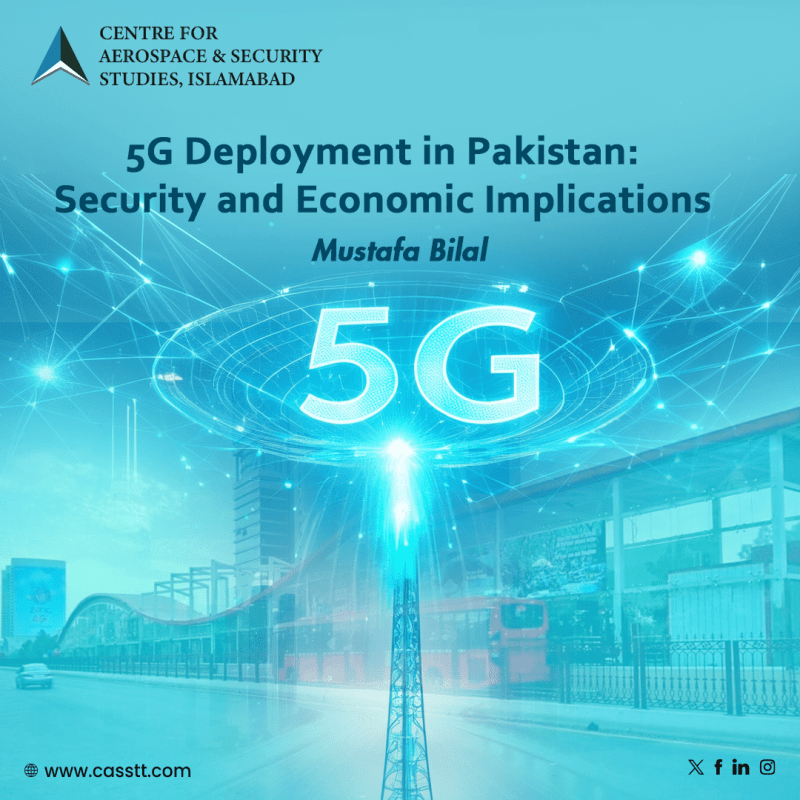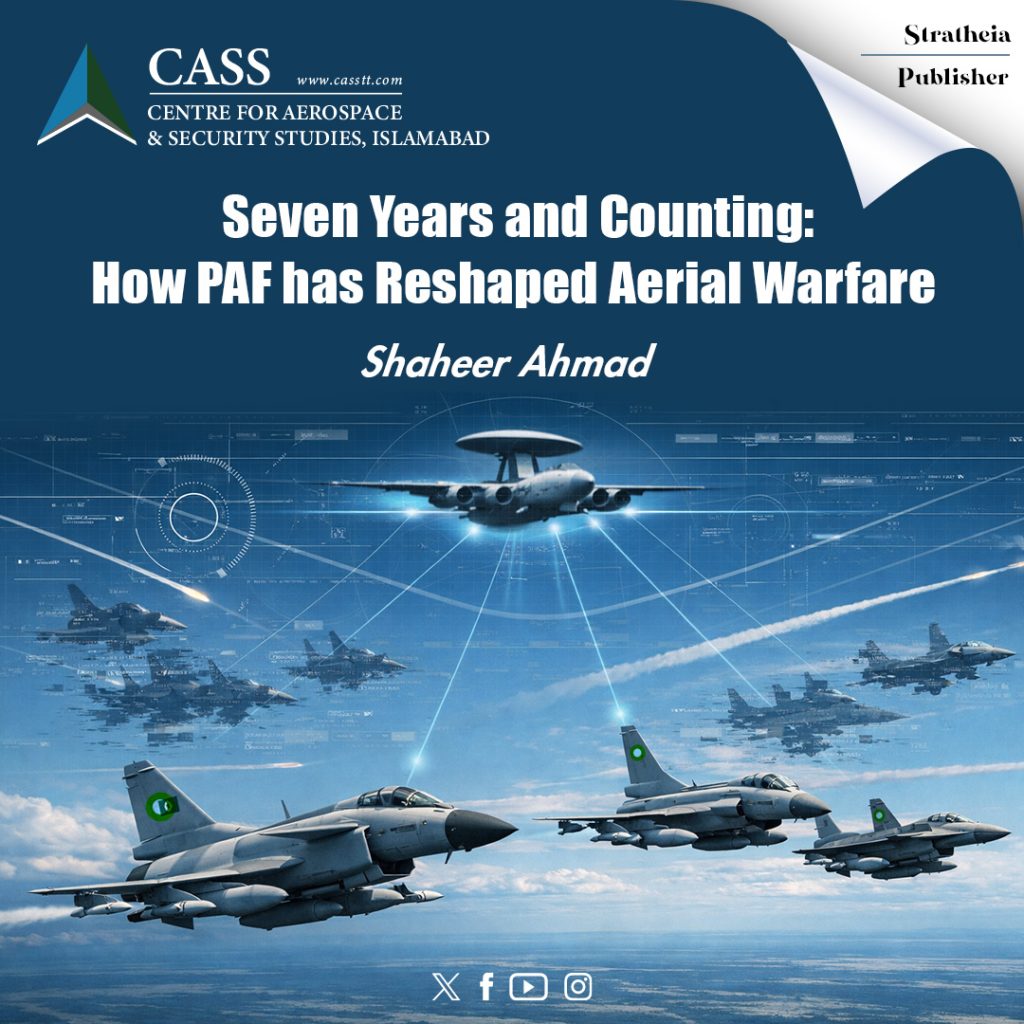Over the past four decades, innovations in wireless telecommunication technologies have driven progress globally with 5G being their latest iteration. South Korea spearheaded the deployment of 5G in 2019, recognising its transformative potential. States across the world followed suit in a span of a few years. Since then, the meteoric pace of 5G adoption is set to bring about an era of unparalleled connectivity as it improves upon 4G networks in terms of speed, connectivity, bandwidth and lower latency. This would usher connectivity and automation across societies in the long-term, a defining characteristic of the Internet of Things (IoT).
The Government of Pakistan has also been trying to expedite plans to deploy 5G in the country by August 2024. For one thing, its economic potential has attracted successive Ministers of IT and Telecommunication, prompting them to advocate for it, regardless of their political affiliation. Their optimism is backed by credible research – a 2022 Ericsson report, named Pakistan among the 15 emerging markets poised to derive its massive socioeconomic dividends. The findings estimated that improved rural 5G coverage could increase long-term GDP from agriculture alone by 1.8% by reducing agricultural waste as well as promoting sustainable farming methods. Smart industries and manufacturing account for nearly 90% of 5G’s economic potential in developing markets like Pakistan. Moreover, 5G could drastically boost the productivity and safety standards of businesses via robotics and Artificial Intelligence (AI). In this way, both large industries and Micro, Small and Medium Enterprises (MSMEs) may be able to leverage 5G to enhance their operational efficiencies. Similarly, a 2022 report by the Global Association of 750 telecom operators (GSMA) highlighted that 5G deployment could contribute more than USD 1.5 billion to Pakistan’s GDP by 2030.
In fact, in a developing economy like Pakistan, 5G could help address urban development issues by laying the foundation for smart and sustainable cities; provide timely medicare to millions in rural areas through virtual consultations and remote patient monitoring; and ensure access to interactive and immersive virtual reality classrooms (VR) via remote learning for students in underserved areas. Such a digital transformation has already occurred in neighbouring country, China, which is leading the world in integrating 5G into its economy and in embracing 5G-enabled telemedicine services and remote learning applications in rural areas.
In terms of security and defence, 5G offers exceptionally high data transfer speeds, near-zero latency and the capacity to connect hundreds of thousands of devices per square kilometre – prerequisites for operating autonomous/semi-autonomous military platforms and enhancing ISR and C2. It could also streamline logistics and revolutionise training for military personnel by enabling simulations in realistic VR environments mimicking hard operational areas.
While much can be written on the benefits, there are many pressing challenges (tangible and intangible) in deploying 5G in Pakistan. First and foremost, lack of an upgraded network infrastructure across the country; and second, systemic bureaucratic and political inefficiencies within the government set-up. To begin with, it has been estimated that the cost of baseline 5G deployment could be as high as USD 8 billion. Finances aside, even if the requisite number of mobile towers were hypothetically constructed and the fibre-optic coverage extended, the current number of 5G-compatible handsets in Pakistan is negligible. The entire telecom sector is also being hamstrung by heavy taxation under the latest Finance Bill. Smartphones are no exception which has significantly driven up their prices.
Another major concern with 5G deployment is the integrity of millions of new networks, which may have unforeseen vulnerabilities. Would the government be able to secure 5G networks against cyber-attacks, data breaches and digital espionage? To this end, Pakistan has remained engaged in international cyber-security dialogues on how 5G can be secured. The Pakistan Telecommunication Authority (PTA) also published a Cyber Security Strategy (2023-28) for the telecom sector in December last year. It outlines pragmatic steps and protocols for ensuring the integrity of future 5G network infrastructure and enhancing the digital resilience of the telecom sector.
Given the impediments, there are differing perspectives about 5G deployment in Pakistan. There are those who hold lofty technological aspirations and those who point to the harsh infrastructure and financial realities. Needless to say, the aforementioned benefits are likely to remain wishful thinking unless the accompanying obstacles are removed.
The question is, is there a magic wand to resolve these challenges in less than a few months?
Prominent voices in the telecom sector advocate for optimising 4G coverage in the interim and then gradually shifting gears towards deploying 5G. Otherwise, its rushed deployment in urban centres could widen the digital divide this technology is envisioned to narrow. Moving forward, ensuring Accessibility and Affordability should be the guiding principles for the deployment of 5G in Pakistan.
Mustafa Bilal is a Research Assistant at the Centre for Aerospace & Security Studies (CASS), Islamabad. He can be reached at [email protected]





